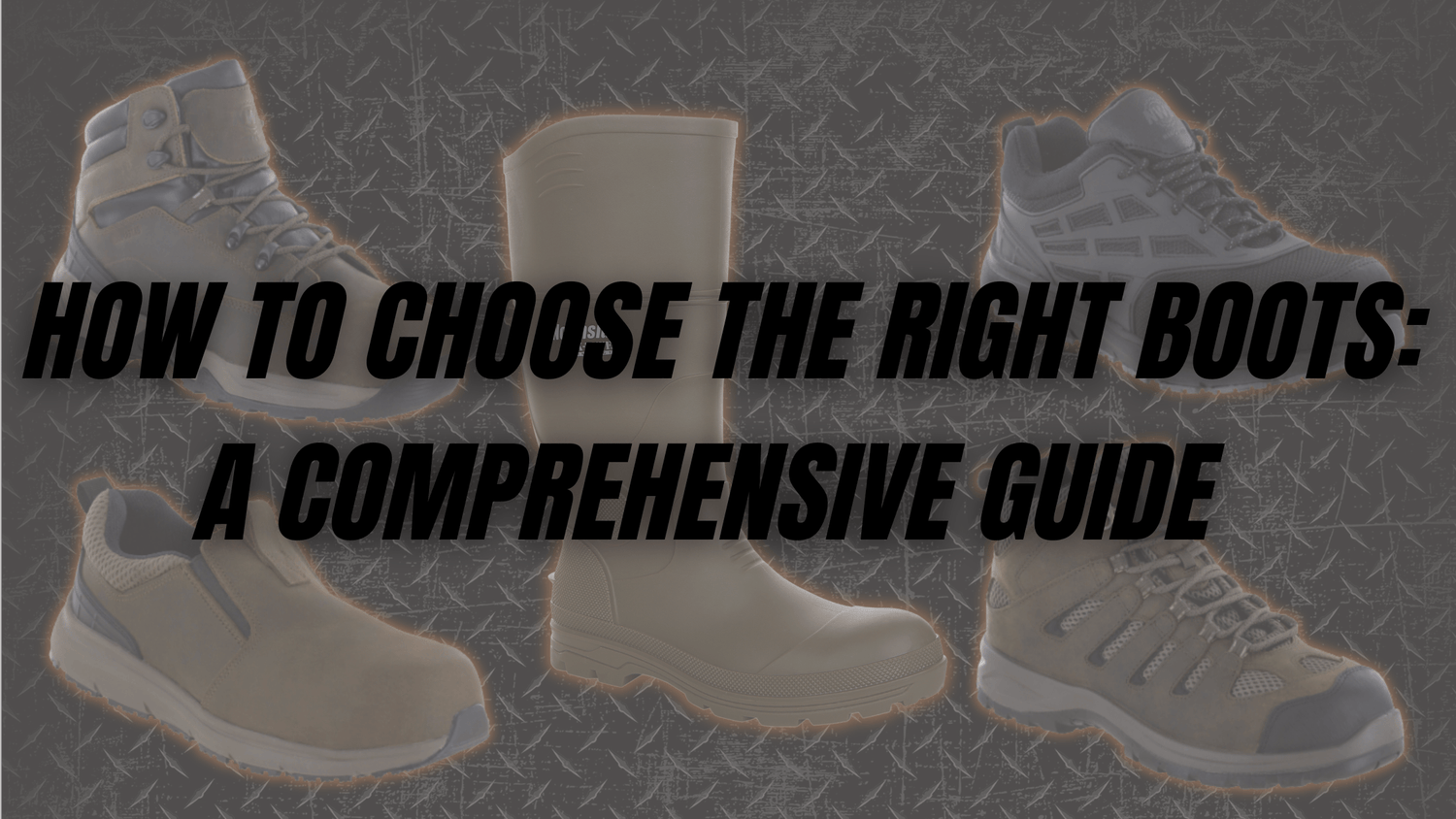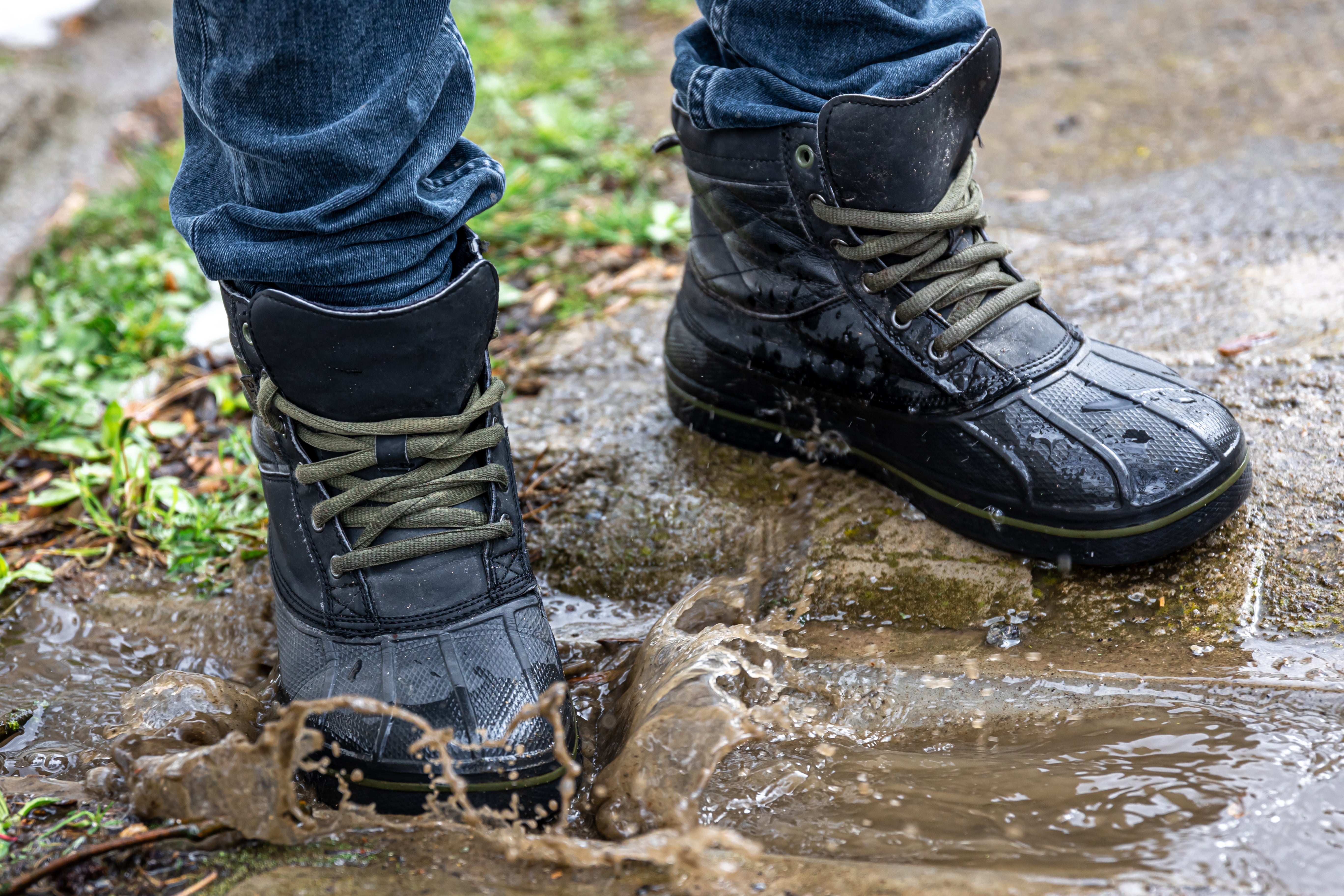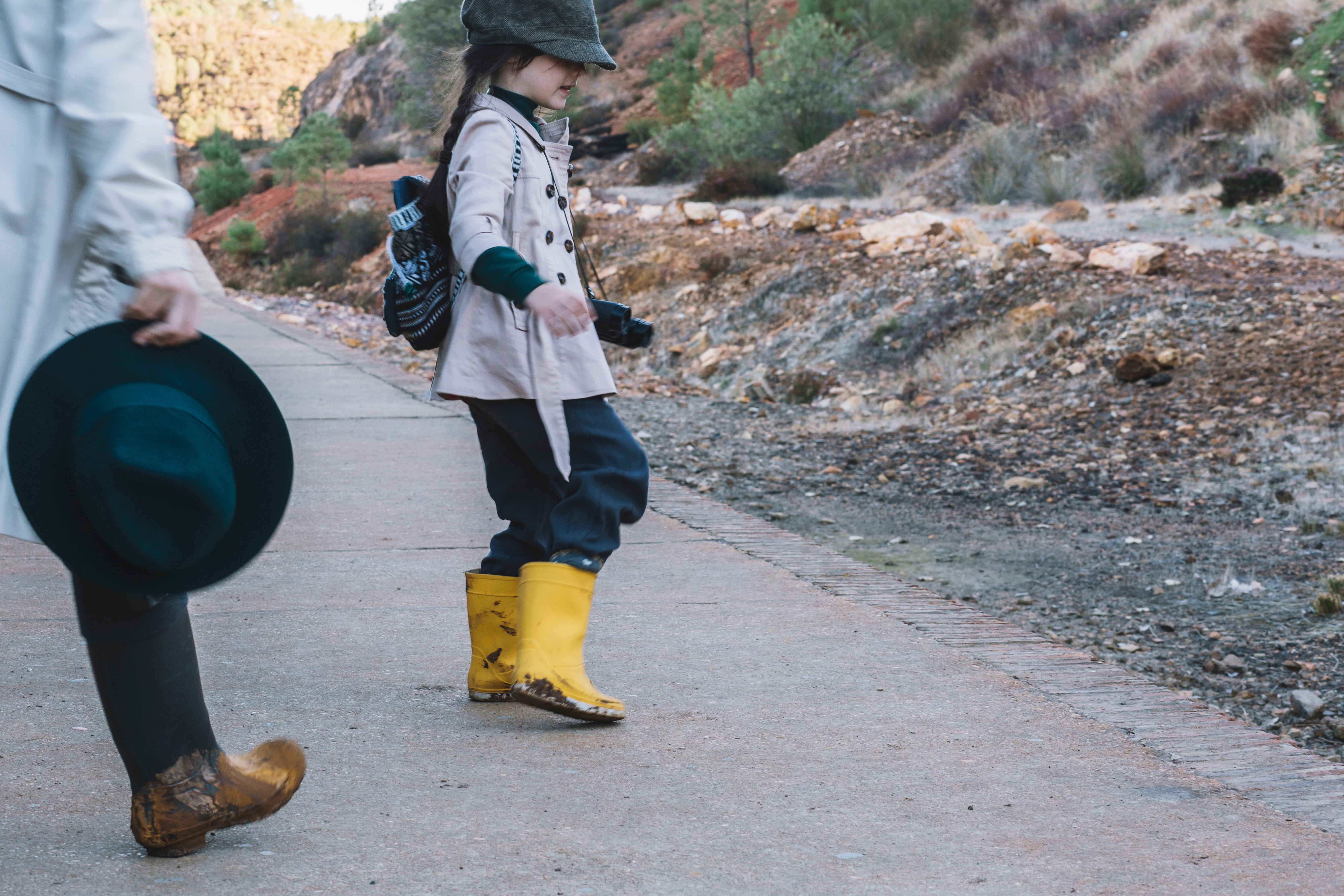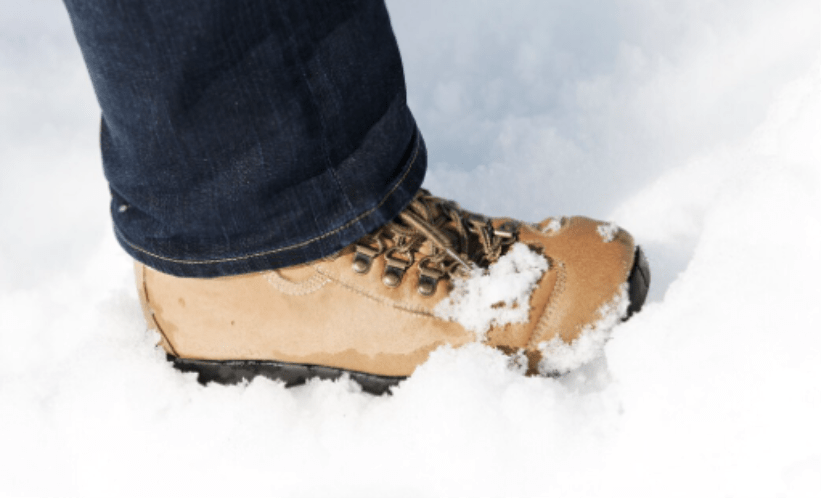As a working professional, your safety on the job should be your top priority. One of the most important aspects of workplace safety is wearing the right protective gear, and work boots are no exception. Choosing the right work boots can be a daunting task, especially with so many options available in the market.
But fear not! In this guide, we'll walk you through everything you need to know to choose the right work boots for your job, from different types of boots to how to choose the right fit and what features to look for. So let's get started!
| Product | Key Features | Link |
|---|---|---|
| Garner Mid Comp Toe |
Waterproof full grain leather upper Slip and oil resistant outsole Composite safety toe Memory foam insole Meets ASTM safety standards |
Garner Mid Comp Toe |
| Axson Mid Comp Toe |
Waterproof full grain leather Composite safety toe Slip and oil resistant outsole Memory foam insole Meets ASTM safety standards |
Axson Mid Comp Toe |
| Trenton Nano Toe |
Abrasion resistant nylon upper Nano safety toe Slip and oil resistant outsole Memory foam insole Static dissipative |
Trenton Nano Toe |
Different Types of Work Boots
When it comes to choosing the right work boots, the first thing you need to consider is the type of work you do. Different jobs require different types of boots, and it's important to choose a pair that will provide the right level of protection and support for your work environment. See steel toe vs composite toe here
Here are some of the most common types of work boots and the jobs they are best suited for:
- Steel Toe Boots: Steel toe boots are designed with a reinforced steel cap over the toe box to protect your feet from heavy objects and compression. They are ideal for construction workers, electricians, and other professionals who work in hazardous environments where there is a risk of heavy objects falling on their feet.
- Composite Toe Boots: Composite toe boots are made with lightweight materials like Kevlar or carbon fiber and provide the same level of protection as steel toe boots. They are an excellent choice for professionals who work in areas where metal detectors are used, such as airports or courthouses.
- Electrical Hazard Boots: Electrical hazard boots are designed to protect workers from electrical shock by providing insulation to the feet. They are ideal for electricians and other professionals who work with live wires or electrical equipment.
- Waterproof Boots: Waterproof boots are designed to keep your feet dry in wet and damp environments. They are ideal for construction workers, landscapers, and other professionals who work outdoors in all types of weather.
- Insulated Boots: Insulated boots are designed to keep your feet warm in cold temperatures. They are ideal for professionals who work in cold storage facilities or outdoors in winter conditions.
How to Choose the Right Fit
Now that you know which type of work boots you need, the next step is to choose the right fit. Wearing ill-fitting boots can lead to discomfort, blisters, and even injuries. Here are some tips to help you choose the right fit:
- Measure your feet: It's important to measure your feet to ensure you get the right size boots. Use a tape measure to measure the length and width of your foot and compare it to the manufacturer's size chart.
- Try on boots in the afternoon: Your feet swell throughout the day, so it's best to try on boots in the afternoon when your feet are at their largest.
- Wear the right socks: Wear the same socks you'll be wearing on the job when trying on boots. This will help you get a more accurate fit.
- Walk around: Make sure you walk around in the boots to get a feel for how they fit. Check for any areas that feel tight or uncomfortable.
- Allow for break-in time: It's important to allow for break-in time when wearing new boots. They may feel stiff and uncomfortable at first, but will eventually mold to your feet with regular wear.
Features to Look For
In addition to choosing the right type and fit of work boots, there are also certain features that you should look for to ensure you get the most out of your boots. Here are some of the key features to consider:
- Traction: Look for boots with a sole that provides good traction. This will help prevent slips and falls, especially on slippery or uneven surfaces.
- Comfort: Your work boots should be comfortable to wear for long periods of time. Look for boots with features like padded collars and insoles, and breathable materials to keep your feet cool and dry.
- Durability: Your work boots should be able to withstand the demands of your job. Look for boots made with high-quality materials and sturdy construction.
- Support: Look for boots with good arch support and a stable heel to help prevent foot and ankle injuries.
- Safety Features: Depending on your job, you may need work boots with additional safety features such as metatarsal guards or puncture-resistant soles. Make sure you choose boots with the right safety features for your job.
Northside Work Safety
Choosing the right work boots is an important decision that can impact your comfort and safety on the job. With so many options available, it can be difficult to know which boots to choose. In this article, we will review three different work boots from our brand Northside USA and provide information on the features and benefits to help you make an informed decision.
Here are the four work boots that we will be reviewing:
- Garner Mid Comp Toe
- Axson Mid Comp Toe
- Trenton Nano Toe
Let's dive in!
1. Garner Mid Comp Toe
The Garner Mid Comp Toe is a versatile work boot that offers both protection and comfort on the job site. Here are some of its features:
- Full grain oiled leather upper with sealed membrane and topical spray for waterproofing
- Slip, and oil resistant rubber outsole with Lenzi board for puncture protection
- Composite shank for additional support and comfort
- Memory foam and PU insole, and compression molded EVA midsole for all-day comfort
- Meets or exceeds all ASTM safety standards for protection
You can purchase the Garner Mid Comp Toe on Northside USA's website at the following link: https://www.northsideusa.com/products/northside-mens-garner-mid-waterproof-composite-toe-work-boot
2. Axson Mid Comp Toe
The Axson Mid Comp Toe is another waterproof work boot from Northside USA. Here are its features:
- Full grain oiled leather upper with sealed membrane and topical spray for waterproofing
- Composite toe for protection that meets or exceeds all ASTM safety standards
- PU dual-density outsole that is puncture, slip, and oil resistant
- Lenzi board for puncture protection, and a composite shank for support and comfort
- Memory foam and PU insole for superior rebound and all-day comfort
You can purchase the Axson Mid Comp Toe on Northside USA's website at the following link: https://www.northsideusa.com/products/mens-axson-mid-waterproof-composite-toe-work-boot
3. Trenton Nano Toe
The Trenton Nano Toe is a unique work shoe that is constructed with heavy-duty abrasion-resistant nylon and features a brushed rubber toe guard. Here are its features:
- Nano toe for protection that meets or exceeds all ASTM safety standards
- Slip and oil-resistant rubber outsole with static dissipative properties
- Memory foam and PU insole, and compression molded EVA midsole, both constructed for superior rebound and all-day comfort
- Static dissipative features give you confidence on the job-site
You can purchase the Trenton Nano Toe on Northside USA's website at the following link: https://www.northsideusa.com/products/mens-trenton-nano-toe-work-shoe
FAQs
Can I wear regular shoes to work instead of work boots?
It depends on your job. If your job requires you to wear work boots for safety reasons, then regular shoes are not a suitable alternative. It's important to prioritize safety on the job and wear the appropriate protective gear.
How often should I replace my work boots?
It's recommended that you replace your work boots every 6-12 months, depending on how often you wear them and the conditions you work in. Inspect your boots regularly for signs of wear and tear, and replace them as needed to ensure continued safety and comfort.
Can I wear my work boots outside of work?
Absolutely! Many work boots are stylish enough to wear outside of work as well. Just be sure to clean them regularly and follow the manufacturer's care instructions to keep them looking and performing their best.
How tight should work boots be?
Work boots should be snug but not too tight. They should be comfortable to wear and allow your toes to wiggle. If your boots are too tight, they can restrict your movement and cause pain. If your boots are too loose, they can rub against your skin and cause blisters.
Conclusion
Choosing the right work boots is essential for staying safe and comfortable on the job. Consider the type of work you do, the fit and features you need, and prioritize safety above all else. With the right pair of work boots, you can work with confidence, knowing that your feet are protected and supported.







Leave a comment
All comments are moderated before being published.
This site is protected by hCaptcha and the hCaptcha Privacy Policy and Terms of Service apply.